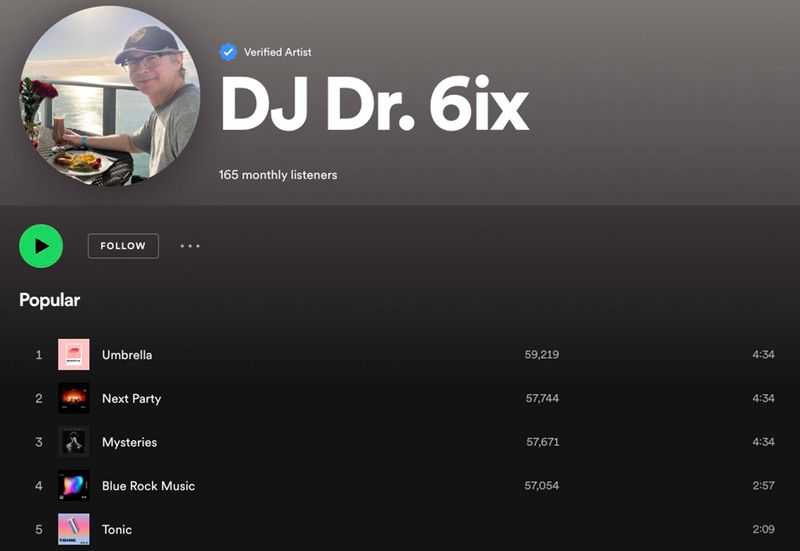(Hypebot) — Hundreds of people, including a doctor, a jeweler, a crypto entrepreneur, and two reality show TV stars, were involved in a multi-million scheme to falsely get verified as musicians on Instagram, according to a Pro Publica investigation.
The hope of those who paid around $25,000 each for false Instagram verification was that the little blue badge would lead to lucrative endorsements and social status.
Two of those accounts were for Mike Vazquez and Lexie Salameh, both stars of the MTV reality show “Siesta Key,” who, instead of getting verified for their TV work, were falsely branded online as musicians just so that they could receive verification.
Another was plastic surgeon Dr. Martin Jugenburg whose previous attempt to become an influencer led to a 6-month suspension of his Ontario medical license after he admitted to filming patients and sharing it online without their consent.

On Spotify, Apple Music, Deezer, and more than a dozen sponsored posts scattered across the net, however, Jugenburg’s past was eclipsed by his persona as DJ Dr. 6ix, a supposed house music producer who’s celebrated for his “inherent instinctual ability for music composition.”
His music was not worth listening to, and almost no one did, but it was enough to get a verification badge for his Instagram account.
“The scheme, which likely generated millions in revenue for its operators, illustrates how easily major social, search, and music platforms can be exploited to create fake personas with real-world consequences, such as monetizing a verified account,” wrote ProPublica reporters Craig Silverman and Bianca Fortis.
Instagram has deleted or removed badges from at least 300 false accounts since the investigation began.
Fake Streams & Music Press Too
“The people running the scheme also purchased articles promoting fake artists and their music on websites, including hip-hop publications like The Source and ThisIs50.com, a music and culture site affiliated with rapper 50 Cent,” the pair wrote, “They often bought fake comments and likes for clients’ Instagram posts to make the accounts look popular and purchased fake streams for songs on Spotify, according to two sources with direct knowledge of the operation. One source said some clients were told to rent a recording studio and post photos on Instagram that made it look like they were working on music.”

“You can make a Spotify account or Apple Music account and boost the streams and get fake music press very cheap. It’s quick and easy,” a source told the reporters.
Google Helped
The source also said that they tried to ensure that a client’s Google search results would always show them as a musician.
“Once articles and music profiles were indexed by Google’s search engine, the site generated a ‘knowledge panel’ in search results for the person’s name. The box appears next to search main results and identifies the person as a musical artist, offering links to their online profiles and music. In the eyes of Google, the client was now a real musician.”
How False Verification Works
from ProPublica
- Step 1 – A client creates content showing them in designer clothing, at luxury locations or in a recording studio to make them look like a musician.
- Step 2 – Spotify and Apple Music profiles are created for the client, basic songs are uploaded with album art, and fake streams are purchased to make their songs appear popular.
- Step 3 – Paid articles about the client’s songs are published to add further legitimacy.
- Step 4 – The client posts their lifestyle and music content, spacing it out over time. Engagement in the form of likes, comments and followers are purchased for the posts, providing evidence of popularity.
- Step 5 – Google’s search engine indexes the client’s music and articles, then automatically generates a “knowledge panel” that brands the person as a musical artist when someone searches for their name.
- Step 6 – In final preparation for verification, a client edits their Instagram bio, feed and highlights to emphasize their musical career.
- Step 7 – The client’s Instagram account is submitted to Meta for verification. If everything goes as planned, they’ll receive a blue check.
Read the full Problica report here.
Bruce Houghton is the Founder and Editor of Hypebot and MusicThinkTank and serves as a Senior Advisor to Bandsintown, which acquired both publications in 2019. He is the Founder and President of the Skyline Artists Agency and a professor for the Berklee College Of Music.





























